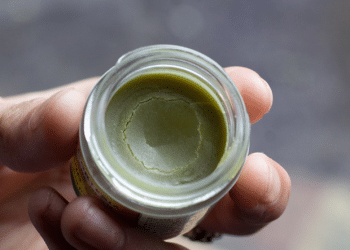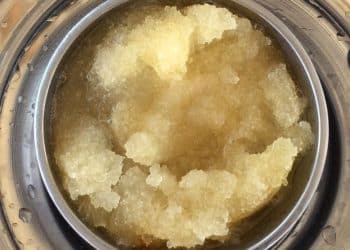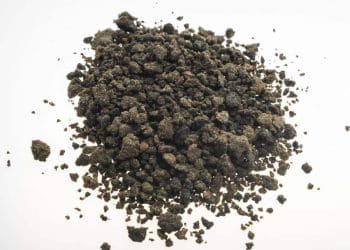Coffee is the choice drink for millions of people in the morning. But, whether you use a French press or a moka, you’re making a botanical extraction, pulling out the phytochemical constituents of coffee beans into a tasty, flavorful elixir. That rich black fluid gives a jolt of energy to people in the morning, and it is excellent practice for anyone wanting to make a botanical extraction at home.
The Global Love for Coffee
Coffee stands as the second most beloved beverage across the globe, trailing only behind tea in popularity. When crafted correctly, it’s not just a comforting brew but also a source of several health benefits, as discussed below. Coffee holds the distinction of being the primary caffeine source for many, and naturally, it boasts one of the highest caffeine concentrations. While caffeine is a crucial component, it’s not the sole nutritional aspect of coffee, and its consumption can be advantageous when moderated.
Choosing the Right Beans
The availability of coffee beans is nearly ubiquitous, making it accessible to people worldwide. Opting for a simple, black coffee brewed from freshly ground beans is the key to unlocking a plethora of nutrients and health advantages compared to pre-ground alternatives. An important caveat is that the research conducted on coffee’s health benefits typically focuses on black coffee without considering the addition of sugar, creamers, dairy, or flavors. It’s worth noting that consuming more than 60 mg of caffeine can lead to adverse health effects. Coffee is rich in antioxidants, offering numerous health benefits. To maximize these advantages, selecting high-quality, freshly ground coffee is recommended over instant or pre-ground varieties.
Cognitive Boost
Caffeine, a primary component of coffee, acts as an energy booster. Some of the antioxidants present in coffee block the uptake of adenosine in the brain, leading to an increase in the production of feel-good hormones such as serotonin and dopamine. Caffeine also plays a role in enhancing neurotransmitter function in the brain, which can improve memory and focus. Furthermore, there is evidence suggesting that caffeine may contribute to reducing the risk of memory loss, dementia, and Alzheimer’s disease.
Coffee and Mood
Coffee’s antioxidants may have a positive impact on mood. The boost in serotonin and dopamine levels can contribute to an improved sense of well-being. However, it’s worth noting that in cases of moderate to severe depression, excessive coffee consumption may exacerbate depressive symptoms.
Coffee’s Liver and Heart Benefits
Emerging studies suggest that coffee consumption may have protective effects on the liver. Research indicates that coffee can potentially reduce scarring, fibrosis, cancer, and the risk of chronic liver disease. Additionally, in moderate quantities, coffee may provide protection to the heart, lowering the chances of stroke, heart failure, and arterial blockage. Nonetheless, it’s important to recognize that caffeine intake is directly associated with elevated blood pressure.
Impact on Pancreatic Health and Weight
Coffee exhibits a mild effect in safeguarding the beta cells in the pancreas, potentially aiding in the prevention of diabetes and supporting normal pancreatic function. Some studies also link coffee consumption to healthier body weights. However, it’s essential to note that these studies also reveal that coffee drinkers tend to be more physically active. Therefore, the correlation between coffee consumption and lower weight may not necessarily imply causation.
The Diuretic Nature of Caffeine
Despite its many advantages, it’s important to recognize that caffeine is a diuretic, meaning that drinking a cup of coffee does not contribute to your daily water intake. For each cup of coffee consumed, it’s advisable to consume at least two cups of water to ensure proper hydration.
Fundamentals of Coffee Extraction
Coffee extraction is the process that pulls flavor from beans into water. It defines how strong or weak a cup of coffee will be. The method involves mixing ground coffee with hot water, which dissolves and releases aromatic oils and compounds. These soluble flavors give the beverage its distinctive taste. The strength of coffee depends on two main factors: how much coffee one uses and how much water passes through it. This relationship determines the final yield, the amount of liquid in your cup after brewing, and its intensity. A higher ratio of coffee to water results in a stronger brew.
Extraction percentage is crucial for assessing quality. It measures what portion of the grounds’ mass has dissolved into the drink itself typically between 18% to 22%. If too little is extracted, under-extraction occurs; this leads to sour, weak flavors due to not enough soluble compounds being pulled out. Over-extraction happens when too much dissolves into the water, causing bitter tastes, as undesirable elements are also included.
 The Botanical Extraction Process in Coffee Making
The Botanical Extraction Process in Coffee Making
The botanical extraction process is vital to releasing the flavors from coffee beans. It begins with breaking down the cell structure of the plant fibers. This step is crucial as it allows for the release of aromatic oils and phenolic compounds, which are responsible for coffee’s rich flavor profile.
Roasting plays a significant role in this process. The level of roast affects solubility and extraction efficiency. Light roasts may retain more complex flavors but are less soluble, making them harder to extract. Dark roasts, on the other hand, break down plant fibers more extensively. They offer greater solubility but can also lead to a loss of delicate flavors.
-
Light roasts: Complex flavors; lower solubility
-
Dark roasts: Higher solubility; potential flavor loss
The origin of the bean also influences extraction characteristics significantly. Beans from different regions contain unique chemicals that respond differently during extraction.
Factors Influencing Coffee Flavor and Quality
The grind size of coffee beans is crucial for flavor extraction. A fine grind can lead to over-extraction, causing bitter flavors. Conversely, a coarse grind might under-extract, resulting in weak coffee. The ideal grind size varies with the brewing method.
Water temperature also plays a significant role. Temperatures between 195°F and 205°F are optimal for extracting the flavorful compounds from the grounds without burning them or leaving behind essential oils.
Brew time affects how much of these compounds end up in the cup. Shorter brew times prevent full extraction, often leading to sour flavors due to high levels of fruit acids not balanced by extracted sugars. Key variables affecting taste:
-
Grind Size;
-
Water Temperature;
-
Brew Time.
The coffee-to-water ratio is another determinant of taste profile. Too much water dilutes the coffee’s strength and flavor, while too little water results in an overly strong brew that may overwhelm with bitterness or acidity.
Roast profiles influence extraction rate and flavor nuances as well. Light roasts retain more caffeine and acidic notes, which translate into brighter cups with pronounced sourness or sweetness depending on bean origin. Medium roasts offer a balance between acidity and body, highlighting chocolatey or nutty notes. Dark roasts tend toward lower acidity but increased bitterness due to longer roast times breaking down sugars and fibers within the bean.
The Art of Coffee Brewing Techniques
In the quest for the perfect cup, coffee enthusiasts often debate between immersion and percolation methods. Immersion brewing involves soaking coffee grounds in water for a set period before separation. This method allows all coffee compounds to be extracted evenly, providing a consistent flavor profile. Percolation, on the other hand, forces hot water through the grounds using gravity or pressure, extracting flavors as they flow over them. Each technique impacts taste differently. Immersion tends to yield a richer body, while percolation can highlight brighter notes.
Grinding for Optimal Extraction in Coffee Preparation
The grind size of coffee beans plays a pivotal role in the extraction process. Consistent grind size ensures that water can flow through the coffee grounds uniformly, extracting flavors effectively. A uniform grind prevents over-extraction or under-extraction, both of which can lead to an imbalanced cup.
Different brewing methods demand specific grind sizes for optimal results. For instance, espresso requires a fine grind to achieve the high pressure needed for a rich shot. Conversely, French press coffee is best with a coarse grind, allowing for full flavor extraction without over-powdering and clogging the filter. Mastering this aspect tailors each brew’s taste profile precisely.
Occasionally adjusting grinds may be necessary when detecting issues in your brewed coffee’s taste. If it tastes overly bitter or harsh, it could signal over-extraction; grinding coarser might help balance the next batch. On the flip side, if the brew is weak or sour, finer grinds could enhance extraction by increasing surface contact with water.
Advanced Methods for Enhancing Coffee Extraction
Botanical extraction methods have evolved, offering coffee enthusiasts innovative ways to enhance flavor. Pressure profiling is one such technique that allows precise control over the extraction process. By adjusting pressure throughout the brewing, baristas can manipulate the flow rate and contact time between water and coffee grounds. This results in a dynamic extraction capable of highlighting nuanced flavors.
Pulse brewing, another advanced method, alternates between periods of water addition and pauses. It gives grounds time to bloom, ensuring a more even saturation. This technique often leads to a fuller body and greater clarity in the cup. Specialty filters also play a role in refining coffee taste profiles. These filters are designed with finer or varied mesh sizes that affect which particles pass through into the final brew. They help extract desirable flavors while minimizing bitterness from fine sediment.
Moreover, modifying water chemistry has become an essential aspect of botanical extraction in coffee making. Water treatments can adjust mineral content to optimize extraction rates and improve overall taste. Recent innovations include ultrasound-assisted brewing, which uses high-frequency sound waves to agitate the water and ground mixture, promoting efficient solubility of complex sugars and other soluble materials at lower temperatures than traditional methods require.
Another novel approach is vacuum brewing, where reduced pressure lowers boiling points leading to gentler extractions at controlled temperatures – preserving delicate aromatics otherwise lost at high temperatures. These advancements work synergistically with knowledge about variables like grind size or bean quality discussed previously—each playing its part in crafting an exceptional cup of coffee.
Closing Thoughts
The exploration of botanical extraction in the realm of coffee has revealed a complex interplay of elements, each contributing to the final cup’s flavor and quality. Plants undergo meticulous processes to yield the nuanced tastes cherished by coffee connoisseurs. It is evident that water quality, brewing techniques, and grind size are pivotal in optimizing extraction and achieving a balanced profile. Advanced methods continue to refine this art, underscoring the dynamic nature of coffee science.
References:
Alasmari F. Caffeine induces neurobehavioral effects through modulating neurotransmitters. Saudi Pharm J. (2020); 28(4):445-451. doi:10.1016/j.jsps.2020.02.005 [Journal impact factor = 2.794] [Times cited = 29]
Liu QP. et al.Habitual coffee consumption and risk of cognitive decline/dementia: A systematic review and meta-analysis of prospective cohort studies. Nutrition. (2016); 32(6):628-36. doi: 10.1016/j.nut.2015.11.015. [Journal impact factor = 3.172] [Times cited = 116 ]
Niezen S. et al. Coffee Consumption Is Associated With Lower Liver Stiffness: A Nationally Representative Study. Clin Gastroenterol Hepatol. (2021) S1542-3565(21)01057-0. doi: 10.1016/j.cgh.2021.09.042. [Journal impact factor = 11.382]

 The Botanical Extraction Process in Coffee Making
The Botanical Extraction Process in Coffee Making










